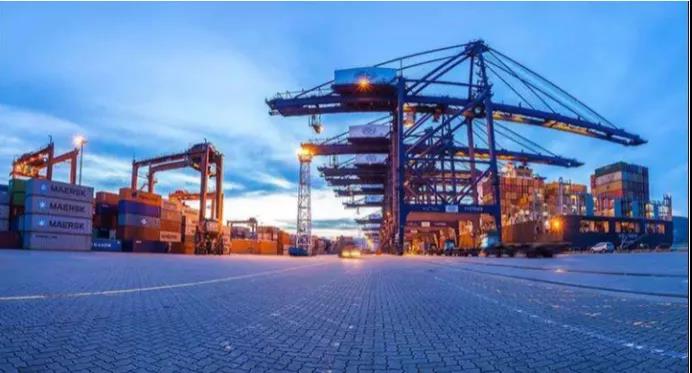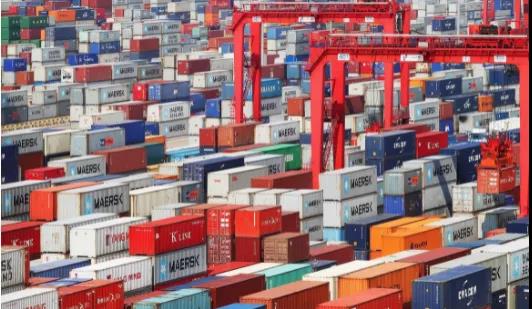China-Brazil Customs AEO Mutual Recognition Arrangement Starts Implementation
RCEP comes into effect
Announcement of import and export license issuing agencies and matters
Temporary exemption of tax deferred interest on domestic sales tax for processing trade enterprises
import and export tariff adjustments for some commodities
Cancellation of filing matters for domestic consignees of imported meat and cosmetics
Announcement on import and export declarations of epidemic prevention and control materials such as detection kits
China-Cambodia Free Trade Agreement comes into effect
The World Customs "Harmonized System" comes into force
Implementation of the "Regulations on the Administration of Filing of Customs Declaration Units"
Implementation of micro-dose X-ray industry standards
The Hong Kong CEPA origin standard has been implemented
Implementation of paperless transit transportation declaration
01 China-Brazil Customs AEO Mutual Recognition Arrangement Started
According to the "Mutual Recognition Arrangement", China and Pakistan mutually recognize the AEO enterprises of each other's customs and provide customs clearance convenience for the import and export goods of the AEO enterprises of both sides, including the application of a lower document review rate and a lower inspection rate. The goods to be inspected are given priority for inspection, designated liaison officers to communicate and solve customs clearance issues, and convenient measures such as priority rapid disposal in extraordinary times.
02 RCEP will come into effect on January 1, 2022
According to the "Regional Comprehensive Economic Partnership Agreement" (RCEP) agreement, RCEP will officially enter into force for China, Brunei, Cambodia, Laos, Singapore, Thailand, Vietnam, Japan, New Zealand, and Australia on January 1, 2022. my country and Japan will reach a tariff reduction arrangement for the first time.
For foreign trade companies, this is a huge bonus. After the RCEP takes effect, nearly 30% of China's exports can achieve zero-tariff treatment, covering China's US$1.4 trillion trade volume.
How to use RCEP to benefit goods in import and export trade? According to Shenzhen Customs, companies should first determine whether the traded goods are within the scope of the RCEP tax reduction list, whether the product has the RCEP origin qualification, and whether the RCEP enjoyment procedural conditions are met.

On December 20, the Ministry of Commerce announced the "List of Authorities for import and Export Licenses in 2022" and related matters. The announcement will be implemented from January 1, 2022. It involves 43 types of export goods, ozone-depleting substances, and key issues. Two imported goods including old mechanical and electrical products.
Copy the link to the website of the Ministry of Commerce for the full text:
http://www.mofcom.gov.cn/article/zcfb/zcblgg/202112/20211203231693.shtml
04 Temporary exemption of tax deferral interest on domestic sales tax for processing trade enterprises
The Ministry of Finance issued an announcement stating that in order to promote the stable development of foreign trade and help companies bail out, from January 1, 2022 to December 31, 2022, the tax deferment interest on domestic sales taxes for processing trade enterprises will be temporarily exempted.
The promulgation of this policy is conducive to making cross-cycle adjustments, helping enterprises to relieve difficulties, especially supporting small, medium and micro enterprises, ensuring orders, stabilizing expectations, actively responding to the current uncertainties in foreign trade facing uncertain, unstable and unbalanced factors, and promoting the stable development of foreign trade.
05 Adjustment of import and Export Tariffs of Certain Commodities
Starting from January 1, 2022, China will impose a provisional import tariff rate on 954 items that is lower than the most-favored-nation tariff rate.
Including the implementation of zero tariffs on the new anticancer drug radium chloride injection, and the reduction of import tariffs on certain medical products such as intracranial embolization stents and artificial joints.
Starting from January 1, 2022, within the scope of China's commitment to join the World Trade Organization, import and export tariffs on certain commodities will be increased.
Among them, the temporary import tariff rate for some amino acids, lead-acid battery parts, gelatin, pork, m-cresol, etc. will be cancelled, and the most-favored-nation tax rate will be restored; in order to promote the transformation and upgrading and high-quality development of related industries, the export tariffs of phosphorus and blister copper will be increased.
06 Cancellation of filing matters for domestic consignees of imported meat and cosmetics
In order to further deepen the reform of “delegation, control, and service”, continue to optimize the business environment at ports, and reduce the burden on enterprises, the General Administration of Customs has decided to cancel the filing of imported meat consignees and the filing of domestic consignees of imported cosmetics, starting from January 1, 2022 It will be implemented from today.
Inquiry method: Log on to the website of the General Administration of Customs of the People's Republic of China, and search for "Meat products exported to China from countries or regions that meet the requirements of assessment and review" in the module of "import and Export Food Safety Bureau-Information Services-Business Information-important Information on import and Export Meat Supervision" "List", the specific names, addresses and other information of the registered companies in this list can be found in the "List of imported Meat Overseas Production Enterprises".
07 Announcement on the declaration of import and export of epidemic prevention and control materials such as detection kits
In order to facilitate enterprise declaration and efficient customs supervision, further improve the accuracy of declaration and statistics of materials for the prevention and control of the new crown pneumonia epidemic, and serve the overall situation of epidemic prevention and control, according to the "2022 Tariff Adjustment Plan" (issued by the Taxation Committee [2021] No. 17), The announcement regarding the import and export declarations of epidemic prevention and control materials such as new coronavirus detection kits is hereby announced.
It will be implemented on January 1, 2022.
08 The China-Cambodia Free Trade Agreement came into effect
From January 1, 2022, the "Free Trade Agreement between the Government of the People's Republic of China and the Government of the Kingdom of Cambodia" formally came into effect.
The "China-Cambodia Free Trade Agreement" was formally signed on October 12, 2020, and the proportion of zero-tariff products in the trade of goods between the two sides reached more than 90%. The commitment to open the service trade market also reflects the highest level they have given their free trade partners.
At the same time, the two sides also agreed to strengthen investment cooperation and deepen cooperation in the "Belt and Road" initiative, e-commerce, economic technology and other fields.

The revised catalog of the 2022 version of the Harmonized System issued by the World Customs Organization will take effect on January 1, 2022. The key commodities of this revision include e-cigarettes and new tobacco products, car windows, LED products, etc.
010 "Regulations on the Administration of Filing of Customs Declaration Units" will be implemented on January 1
From January 1, 2022, the "Regulations of the People's Republic of China on the Administration of Filing of Customs Declaration Units" (issued by Order No. 253 of the General Administration of Customs) will be implemented. There are 16 major items in these regulations, which specifically include customs declaration entities, temporary handling of non-trade import and export activities, handling of filing and cancellation procedures, and punitive measures.
The original "Regulations on the Administration of the Registration of Customs Declaration Units" and the "Administrative Measures for Entry-Exit Inspection and Quarantine Declaration Enterprises" shall be repealed at the same time.
011 Implementation of industry standard for micro-dose X-ray
According to the "Administrative Measures of the Customs Industry Standards of the People's Republic of China (for Trial Implementation)" (Announced by Order No. 140 of the General Administration of Customs, amended by Order No. 235 of the General Administration of Customs), the General Administration of Customs issued the "Micro-dose X-ray Customs Inspection Equipment Part 1 :General Technical Requirements" and other 12 customs industry standards. This batch of standards will be implemented on January 1, 2022.
75 industry standards including the "Inspection Regulations for imported Children's Shoes" were implemented (Announcement No. 45 of the General Administration of Customs Announcement 2021), and 14 replacd standards were abolished at the same time.
From January 1, 2022, the Hong Kong origin standard under CEPA revised by the General Administration of Customs will be implemented (Announcement No. 102 of the General Administration of Customs in 2021).
This time, the country of origin standard in the Harmonized System code 56.03 in the Announcement No. 214 of 2018 of the General Administration of Customs has been revised:
Commodity name: Non-woven fabric, whether or not impregnated, coated, covered or laminated.
Original standard: changed from other items to this.
Revised standards:
(1) Change from other items to this;
(2) The regional value component is calculated by 40% by deduction method or 30% by cumulative method.
013 The paperless declaration of transit transportation will be implemented on January 1
The General Administration of Customs Announcement No. 116 of 2021 stipulates the implementation of paperless transit transportation declarations: starting from January 1, 2022, the customs will review the electronic data of transit transportation declarations declared by enterprises without receiving paper documents. .

